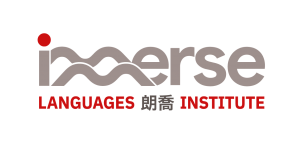Tackling IELTS Test
IELTS (International English Language Testing System) is for non-native students who want to study at universities in countries where the medium of teaching is English (except the United States). IELTS measures a candidate’s level of proficiency in English.
In addition, the test is also accepted by employers, professional bodies, government departments and immigration authorities.
IELTS test results are reported on a band scale from 1 (beginner) to 9 (native). Depending on the country, top universities will require a score of 6.5 – 7, and in some cases where academic excellence is required, this might go up to 8.5.
The exam can be taken in three different versions:
Academic
This version, which is the more popular one, is for applying for a student visa, mainly to study at an English speaking country’s university. Therefore it’s based on academic English and requires the candidates to accurately use and interpret information that they would typically encounter at university, including passages and graphs from a range of subjects and topics. If you are ready to book a test, click here.
General
This version is mainly designed for visa and / or immigration purposes for those seeking work experience, training programmes or secondary education abroad. The General IELTS differs from the Academic version in the reading and writing papers, since it focuses more on a communicative approach and requires candidates to answer questions based on real life situations, including basic survival skills in broad social and workplace situations. If you are ready to book a test, click here.
If you are considering taking IELTS for one of the reasons mentioned above and aiming to achieve the necessary score, we have the right IELTS preparation courses in Hong Kong for you.
Life Skills
This is the most recent added version of IELTS and it’s also designed for visa and / or immigration purposes, but in this case mainly for family members relocation or visa extensions. This examination focus on speaking and listening skills and is offered in either of the first three CEFR levels:
- A1: to prove English speaking and listening skills as part of UK Visas for further leave to remain.
- A2: to prove English speaking and listening skills as part of UK extension Visas for further leave to remain.
- B1: to prove English speaking and listening skills as part of UK Visas for indefinite leave to remain or citizenship.
If you are considering taking IELTS for one of the reasons mentioned above and aiming to achieve the necessary score, we have the right course for you.
At Immerse we offer intensive, one-on-one or small group preparation of any of the different IELTS tests:
- Bespoke IELTS Coach
- Focus course provides individual section enhancement
- Regular course provides comprehensive training from the very beginning
Tackle the IELTS exam preparation at Immerse and achieve your career and life goals!



